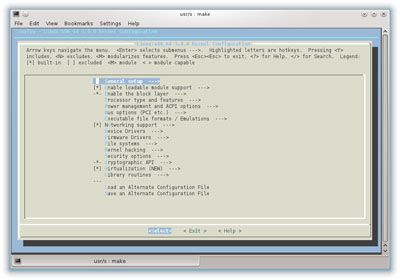- Qualcomm Launches Snapdragon 4 Gen 2 Mobile Platform
- AMD Launches Ryzen PRO 7000 Series Mobile & Desktop Platform
- Intel Launches Sleek Single-Slot Arc Pro A60 Workstation Graphics Card
- NVIDIA Announces Latest Ada Lovelace Additions: GeForce RTX 4060 Ti & RTX 4060
- Maxon Redshift With AMD Radeon GPU Rendering Support Now Available
Linux Kernel 3.5 Released
Further proving that Linux kernel developers never take a break, version 3.5 was released over the weekend. This marks the fifth major release since the kernel hit 3.0 last June, so we’re now seeing an accelerated release pace. This release brings some important features, including an option to enable checksums for metadata using ext4, userspace probes to better evaluate application performance, Btrfs improvements and much more.
In their continuing effort to make ext4 as secure as possible, the developers have implemented the ability to have all metadata checksummed. This is useful only for the metadata itself, as the data isn’t checksummed for the sake of performance. It can help prevent widespread metadata corruption if any does arise, however. It’s important to note that once metadata checksumming is enabled on a volume, kernels that don’t have this ability (essentially, pre-3.5) will only be able to mount them in read-only mode. If you’re in a situation where you sometimes back down to the previous kernel version, it’s probably best to hold off on this option for a couple of kernel releases.

For developers, Uprobes have been officially added to the kernel to aid in application debugging. Probes can be placed in the memory address of an application without having to restart it, and statistics can be viewed with a simple perf command.
On the topic of statistics, Btrfs fans have once again received some love in this release. I/O failure statistics have been added, recording CRC and I/O errors along with other things. Another storage addition is SCSI over FireWire/USB support, allowing the user the ability to send SCSI-specific commands to their connected drive. This would require a drive/enclosure that officially supports the standard.
There’s much, much more to talk about with 3.5, so for a full run-down I recommend heading on over to Kernel Newbies at the link below.




